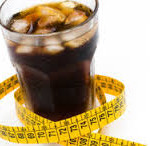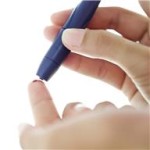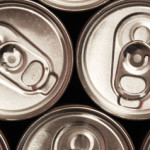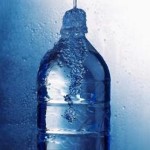Is Diet Soda Safe?
 Demanding work, countless school papers and exams, traffic, hectic schedules, heat and extreme thirst are just examples of the common stressful situations in our everyday lives. The fastest way to ease the feeling of being tense or get through the day is to gulp revitalizing beverages, usually sodas. Sodas can provide a feeling of being refreshed and can somehow lessen stress and pressure. But nowadays, with the fear of weight gain, diet sodas have been the choice.
Demanding work, countless school papers and exams, traffic, hectic schedules, heat and extreme thirst are just examples of the common stressful situations in our everyday lives. The fastest way to ease the feeling of being tense or get through the day is to gulp revitalizing beverages, usually sodas. Sodas can provide a feeling of being refreshed and can somehow lessen stress and pressure. But nowadays, with the fear of weight gain, diet sodas have been the choice.
Companies have been increasing their efforts to fully convince the people that these diet sodas are healthier and can really cut down fats in our diet. Since most of us have been struggling when it comes to obesity, the tendency is to choose diet soda as a replacement, with the thought that they will not gain weight.
According to preventdisease.com, more than 15 gallons of diet soda were sold by the year 2000, which means that for every man, woman and a child, a 12 ounce can per day is consumed. Numerous studies and researches have been conducted on these diet sodas and one of which, as suggested by the American Diabetes Conference, that  diet sodas may be as bad as the regular soda. It has been linked to a couple of diseases like diabetes, heart disease, different types of cancers and even obesity. Studies have been led to the contents of the diet sodas as the culprit. But, what are the ingredients of diet soda? There are several artificial sweeteners used as a substitute to sugar. Some includes the following:
diet sodas may be as bad as the regular soda. It has been linked to a couple of diseases like diabetes, heart disease, different types of cancers and even obesity. Studies have been led to the contents of the diet sodas as the culprit. But, what are the ingredients of diet soda? There are several artificial sweeteners used as a substitute to sugar. Some includes the following:
Aspartame, commonly called by brand name NutraSweet, Equal, Spoonful, is one of the most commonly used artificial sweeteners. According to mercola.com (as cited at: http://articles.mercola.com/sites/articles/archive/2011/11/06/aspartame-most-dangerous-substance-added-to-food.aspx), Aspartame is by far the most dangerous substance on the market that is added to foods. Researches have sown that there are several illnesses that can be triggered by aspartame. Examples are brain tumors, sclerosis, epilepsy, mental retardation, Alzheimer’s disease, Parkinson’s disease, birth defects and diabetes.
 Cyclamate or Sodium Cyclamate is an example of artificial sweetener in diet soda. It is a low-calorie sweetener that is 30 times sweeter than sucrose. However it has been linked to some illnesses like bladder cancer and liver cancer.
Cyclamate or Sodium Cyclamate is an example of artificial sweetener in diet soda. It is a low-calorie sweetener that is 30 times sweeter than sucrose. However it has been linked to some illnesses like bladder cancer and liver cancer.
Saccharin is also a non-caloric artificial sweetener and also a sugar substitute in foods and beverages including diet sodas. It is also found in jams, chewing gums, table top sweeteners, canned fruits and salad dressings. On the other side, some studies conducted have been found out that saccharin, if taken in high doses, can contribute to the occurrence of bladder tumor.
Clearly, more and more Americans have been drinking this diet soda without further knowing the harmful effects it can produce if taken in large amounts. The research published in  American Journal of Clinical Nutrition shows a relationship in the consumption of diet or “light” sodas and increased risk to type 2 diabetes (as cited at http://www.huffingtonpost.com/2013/02/11/diet-soda-diabetes-risk-type-2-artificially-sweetened-sugar_n_2663247.html). The said study involved 66,148 women whose beverage habits are monitored for 14 years. They self-reported their consumption of 100 percent juice, sugar-sweetened drinks and artificially sweetened drinks. By the end of the study, 1,369 of them were diagnosed to have type 2 diabetes. The regular soda and the diet soda have been associated to high risks of diabetes. But what’s more interesting is that the diet soda drinkers have the higher risks.
American Journal of Clinical Nutrition shows a relationship in the consumption of diet or “light” sodas and increased risk to type 2 diabetes (as cited at http://www.huffingtonpost.com/2013/02/11/diet-soda-diabetes-risk-type-2-artificially-sweetened-sugar_n_2663247.html). The said study involved 66,148 women whose beverage habits are monitored for 14 years. They self-reported their consumption of 100 percent juice, sugar-sweetened drinks and artificially sweetened drinks. By the end of the study, 1,369 of them were diagnosed to have type 2 diabetes. The regular soda and the diet soda have been associated to high risks of diabetes. But what’s more interesting is that the diet soda drinkers have the higher risks.
How could the diet sodas increase the risk for developing diabetes? There are many possible answers to that. One of which is that people are unaware of the contents of these diet sodas. They may think that diet or “light” sodas don’t contain sugar. What they don’t know is that it really does contain artificial sweeteners associated to different diseases. Another explanation would be the artificial sweeteners confuse the body on how much energy it needs and consumes. That’s why when you feel that your blood glucose is low, even though it’s not, you eat more. In addition, the taste buds could be thrown off. Diet sodas are made of artificial sweeteners that are sweeter than sugar. In reality, real foods are not that sweet, but if diet sodas are consumed in frequency and in large amounts, there is a tendency to seek more of that sweet flavor, thus, increasing the risk for developing diabetes.
Diet sodas can also contribute obesity. It has been found out that light sodas increase the risk of obesity at 1.6 times. Bone weakening can also be a result of consuming large amounts of diet sodas. One of the ingredients of diet soda is Phosphorus and the substance itself can decrease the amount of calcium in the bones.
Aside from diet sodas, there are many refreshing beverages that can soothe the thirst you are feeling.
Examples are:
- Infused water- You can simply cut your favorite fruit and leave it on a pitcher of water for just three hours. You can also add herbs like mint or rosemary.

- Iced tea
- Seltzer + juice
- Fresh juice- By selecting your favorite fruit, you can receive relevant and significant nutrients for your proper body functioning
- Water- Nothing beats drinking 8-12 glasses per day. It keeps you well-hydrated on the times especially when you needed it the most.
Diet sodas can really soothe our thirst and can indeed provide us that soothing and refreshing feeling especially when we feel stressed. However, too much of it can lead to many diseases in which in the end, we may suffer if moderation is not implemented. There are many substitutes mentioned above which you can use, but in the end, water is still the best therapy.
